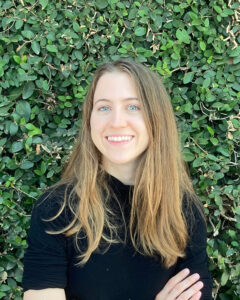
Approximately 2.7 million youths, aged 3-17 years, meet criteria for a depressive disorder (Bitsko et al., 2022). Yet, most youths and their families struggle to recognize the signs and symptoms of depression and get connected with appropriate services. Schools play a critical role in promoting the well-being and mental health of youths, and provide a natural avenue for identifying, preventing, and treating youth depression. This training will provide resources to school professionals on identifying depression in school-aged youth and provide strategies to address cognitive, behavioral, and physiological symptoms of depression. We will also provide free resources to help in the identification and treatment of depressive disorders. An important emphasis will focus on incorporating cultural beliefs, values, and behaviors into clinical work with diverse youths and their families.
Learning Objectives:
1. Identify signs of depression in school-aged youth
2. Describe ways to assess depression in school-aged youth
3. Describe ways to address depression in school-aged youth
4. Describe ways to culturally adapt depression interventions for ethnic-racial minoritized youth
Alayna Park, PhD

Alayna Park, Ph.D., is an Assistant Professor of Psychology at the University of Oregon and a licensed psychologist. She is one of the founding faculty of the department’s Diversity Science area, as well as an affiliate faculty of the Ballmer Institute for Children’s Behavioral Health. Her community-engaged research focuses on identifying strategies to improve the quality and effectiveness of mental health services for youth of color, using intervention and implementation science. Dr. Park has more than 30 peer-reviewed publications on the topics of intervention design, cultural adaptation, clinical decision making, and evidence-based psychotherapy implementation. She has received NIH funded fellowships from the Child Intervention, Prevention, and Services (CHIPS) Research Training Institute and the Health Disparities Research Institute (HDRI). In 2022, she co-edited a special issue for The Behavior Therapist on promoting diversity, equity, and inclusion in clinical training, and she was awarded Reviewer of the Year from the Association of Behavioral and Cognitive Therapies (ABCT). Her research has been recognized with numerous awards, including the Diversity Paper Award from the Society for the Advancement of Psychotherapy. Dr. Park was trained by leaders in Cognitive Behavioral Therapy (CBT), Acceptance and Commitment Therapy (ACT), Integrative Behavioral Couples Therapy (IBCT), and the Modular Approach to Therapy for Children (MATCH). She supervises Clinical Psychology PhD students in the University of Oregon Psychology Clinic and provides expert consultation to mental health professionals across the country.
Alyssa Herman

Alyssa Herman (she/her/hers) is a fourth year Clinical Psychology PhD student at the University of Oregon. She graduated from the University of California, Los Angeles with a BA in psychology and a minor in Applied Developmental Psychology. She is currently researching strategies to reduce obstacles to accessing mental health services and to improve the distribution of mental health information. Clinically, Alyssa is receiving training to deliver evidence-based therapies to youth across a variety of settings.